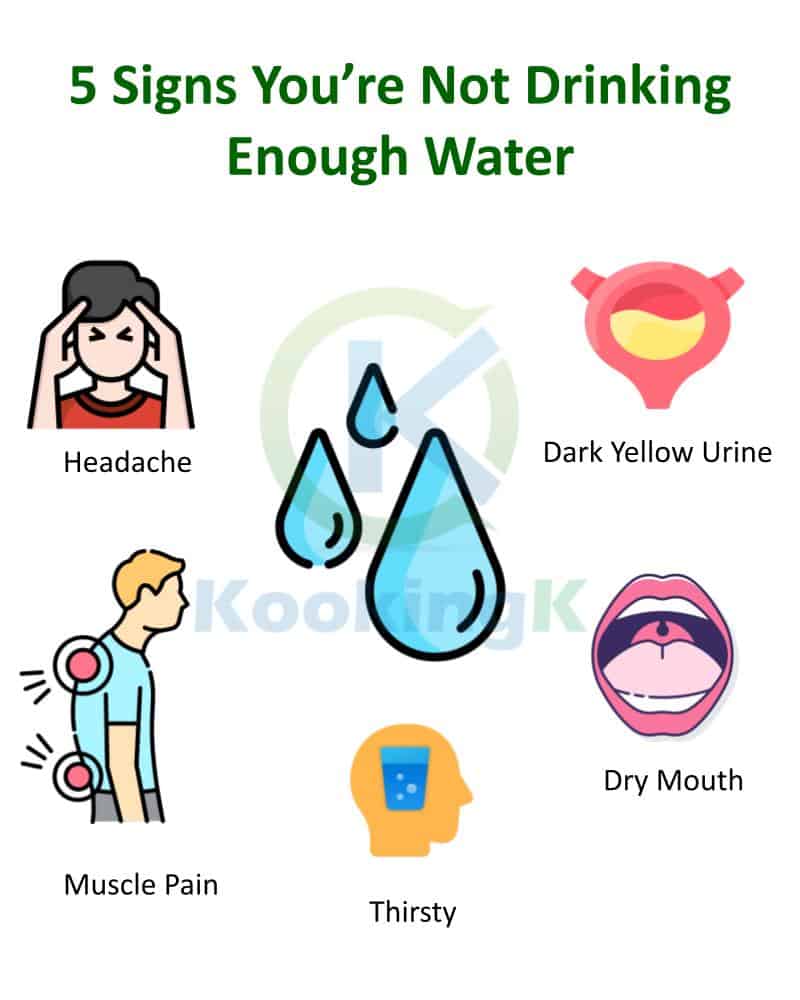How Much Water Should I Drink Daily
It is commonly recommended that people drink eight glasses of water every day. However, this is not always the case, and the quantity of water a person should drink varies based on their age, activity level, and other factors.
How much water should you drink on a daily basis? It’s a straightforward question with no clear answer.
Various studies have resulted in varied recommendations over the years. However, your unique water requirements are determined by a variety of factors, including your health, level of activity, and location.
There is no one-size-fits-all formula. Knowing more about your body’s fluid needs will assist you to estimate how much water to drink each day.
Benefits of Drinking Water
Water makes up over 60% of the human body. This vital vitamin is required by your body. In fact, you couldn’t survive without water for more than a few days. Here are just a handful of the numerous advantages of water. Water is beneficial:
- To control your body’s temperature
- To maintain a clean mouth
- Help protect delicate areas and lubricate your joints
- To eliminate hazardous wastes via urine, perspiration, and feces
- To provide nourishment to your organs via your blood
Dehydration can occur when your body does not have enough water to carry out regular tasks due to a lack of water. Even moderate dehydration can deplete your energy and leave you weary.

How Much Water Should I Drink Daily?
Every day, you lose water through your breathing, perspiration, urination, and bowel movements. To function properly, you must replenish your body’s water supply by consuming water-containing liquids and foods.
So, how much fluid does a regular, healthy adult need in a temperate climate? The National Academies of Sciences, Engineering, and Medicine of the United States determined that the following is an adequate daily fluid consumption:
- Men should drink around 15.5 cups which is (3.7 liters)
- Women should drink around 11.5 cups which is (2.7 liters).
These recommendations apply to fluids such as water, other beverages, and meals. Meals usually account for around 20% of daily fluid intake, with drinks accounting for the remaining.
Drinking too Much Water at Once
It is essential to drink water slowly throughout the day. Too much water at once may raise the risk of hyponatremia, a disease that develops when the body’s electrolytes become depleted. According to the Mayo Clinic, hyponatremia can be fatal.
How Do i Know if i am Drinking Enough Water
Looking at the color of your urine is an easy method to tell if you’re getting enough water. Urine should be clear or pale yellow in color. If your pee is dark yellow, brown, or amber in color, it may indicate that you need to drink more water.
Drinking insufficient water can result in dehydration, a condition in which the body lacks sufficient water to carry out its usual tasks. Mild-to-moderate dehydration is usually treated by just drinking additional water.
Here are some symptoms of mild-to-moderate dehydration, which your body is using to alert you that you need to drink more water:
- Urine that is dark or smelly
- Mouth dryness
- Thirst
- Headaches
- Urination is less frequent.
- Cramps in the muscles
How to Avoid Dehydration
Water alone isn’t enough to keep you hydrated. All beverages containing water help you meet your daily requirements. It’s also a myth that caffeinated or alcoholic beverages are dehydrating because they induce you to urinate. They do, however over the course of the day, the water from these beverages contributes to overall fluid consumption in a net beneficial way.
Of course, there are other reasons why water remains the preferable option. Remember that sugary drinks can cause weight gain and inflammation, increasing your chance of acquiring illnesses like diabetes. Caffeine might give you the jitters or prevent you from sleeping.
To avoid dehydration, drink water progressively throughout the day. A simple approach to do this is to drink with each meal, as well as social or with medicine.
Also, remember that water-rich meals, such as salads and fruits, provide fluids.
We also have:
Home Remedies For Periods Cramp
If you are a food lover and enjoy making food for your loved ones then subscribe to our channel KookingK on Youtube.
